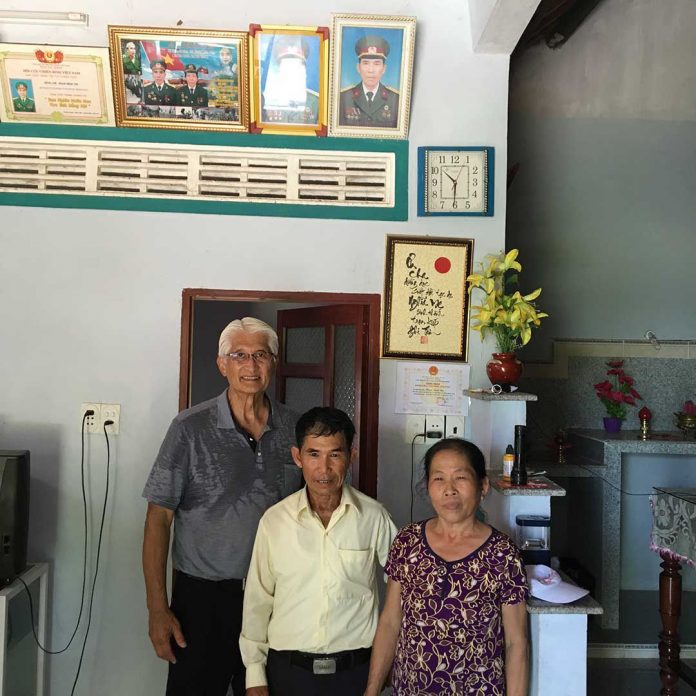
Last August, I had the opportunity to speak at a Hitachi conference for Chief Information Officers from companies in Vietnam. This conference was held in Danang, Vietnam, which was in the area of operations during my tour in Vietnam. I took this opportunity to visit some of the battle sites I was engaged in 50 years ago.
One of the areas that I visited was Tinh Binh near Quang Nhai. This was the site of Operation Utah where my unit, 2nd Battalion, 7th Marines, engaged two regiments of the North Vietnamese Army. After a day-long battle, we were overrun and had to call air strikes down on our position to survive.
I found a villager that lived in the area who was a 16-year-old Viet Cong at the time. He did not participate in the fighting, but he helped the North Vietnamese Army dig their fortifications. He later became an officer, and he and his wife were honored by Ho Chi Minh and General Giap. We walked the battlefield together using my old military map and later he invited me to his home for tea where he and his wife showed me their many citations from Ho Chi Minh.
My best friend in the Marine Corps was the executive officer of G Company when he was shot through the chest on the first day of Operation Utah. He survived Operation Utah and we both joined IBM after we left the Marine Corps.
Over the past 50 years, he has sent me a Christmas card every year, with which he encloses a picture of his family. I have seen his family grow with kids, marriages, grandkids and now their wives and husbands. All this would not exist if the bullet had hit him a few millimeters either way or the helicopter had not evacuated him in time.
Operation Utah was a success for the Marines in the way they kept score in that war. There were 98 Marines killed in action versus an estimated 600 North Vietnamese. If you visit the Vietnam Memorial in Washington, D.C., you will see the names of these Marines on the wall in the time period, March 4 to 6, 1966.
When I visited the area of Operation Utah this August, there was a large military cemetery where hundreds of Vietnamese soldiers were interred. These were North Vietnamese soldiers who had travelled from their homes in North Vietnam to fight and die and be buried in this area so far from their family homes. I said a prayer for them as I prayed also for our Marines.
Now 50 years after that war, I wonder at the loss we all suffered and the senseless waste. I work with my Vietnamese colleagues in Hitachi, whose fathers and grandfathers fought against us in the same war. There is no hatred or distrust—only a shared sense of vision and cooperation in our work.
Thomas J. Watson, the founder of IBM, made many speeches on “World Peace Through World Trade.” I am hopeful for that vision. In Hitachi, our corporate strategy is Social Innovation, developing solutions to make society healthier, smarter, and safe. That means a world without war.
Hubert Yoshida is a Morgan Hill resident.






